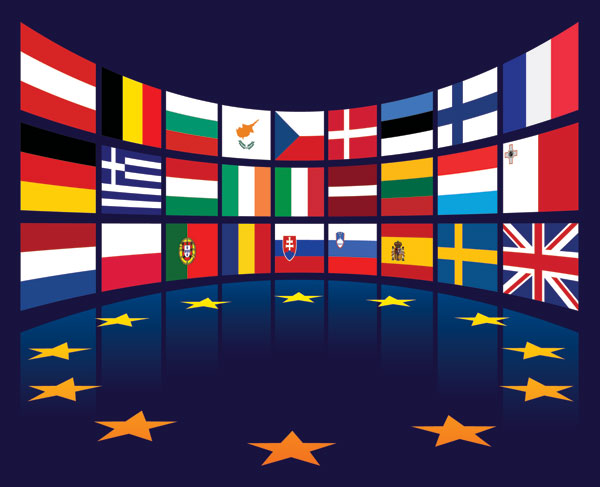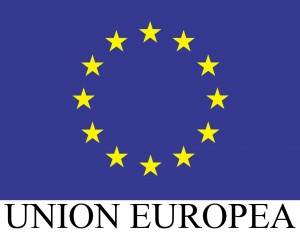EUROPA ESPERA “RESULTADOS MUY LENTOS” EN NEGOCIACIONES CON CUBA.
“Los cubanos son conscientes de que un acuerdo incluirá disposiciones sobre democracia y derechos humanos’, advierte el probable jefe negociador por parte de Bruselas.
El director general para las Américas del Servicio Europeo de Acción Exterior, Christian Leffer, ha reconocido este martes que espera “resultados más lentos” en las negociaciones con La Habana para suscribir un nuevo acuerdo de diálogo político y cooperación, informó Europa Press.
“Pero aquí también estoy convencido de que podemos y haremos un buen progreso”, ha avanzado el diplomático europeo en una comparecencia ante la Comisión de Asuntos Exteriores del Parlamento Europeo, para dar cuenta de los avances en las relaciones con Cuba y otros socios de Latinoamérica.
Ambas partes todavía buscan una fecha para celebrar la primera ronda de negociaciones que tendrá lugar en La Habana, según una fuente de alto nivel de la UE.
La idea es mantener reuniones cada dos meses —en La Habana y Bruselas de forma alternativa— y contactos informales entre medias, incluido por videoconferencia.
Leffer ha dejado claro que la primera ronda no se ha celebrado por cuestiones de agenda, no por “tácticas” dilatorias de ninguna parte, y ha explicado que tendrá lugar en “el momento apropiado” para ambas partes.
La UE propuso mantener la primera ronda a finales de marzo o principios de abril, pero no convenía a la parte cubana, que propuso a la UE celebrarla la semana del 12 de abril, que no es posible para la parte europea, según una fuente de alto nivel de la UE.
El acuerdo se tratará de cerrar “en algún momento en 2015”, pero la fuente ha recalcado que “mejor un buen acuerdo que rápido”, dado que se supone que debe enmarcar las relaciones bilaterales “durante 15 o 20 años”.
“Lo rápido que progresemos dependerá mucho de cómo reaccionarán los cubanos a la agenda que hemos fijado. Son bien conscientes de que cualquier acuerdo con la UE incluirá las disposiciones normales sobre gobernanza, democracia, derechos humanos y no proliferación de armas de destrucción masiva”, aseguró Leffer.
Según el dilomático, La Habana ha confirmado “informalmente” que no eso será un problema para el régimen.
“El demonio está en los detalles, pero en principio están de acuerdo”, ha explicado Leffer, que previsiblemente será el jefe negociador por parte de la UE.
Posición Común vigente
El director general para las Américas del Servicio Europeo de Acción Exterior ha recordado que los cubanos son conscientes de que la UE negocia con la Posición Común en vigor.
“Y que no puedo ofrecerles ninguna perspectiva ni garantías de si se levantará la Posición Común ni cuándo”, ha recalcado, recordando que es una decisión que deben tomar por unanimidad los Veintiocho, aunque la idea es poder hacerlo tras concluir el acuerdo, según fuentes diplomáticas.
El alto diplomático ha recalcado que el objetivo de las negociaciones con La Habana “no es cambiar fundamentalmente” la política hacia la Isla, cuyos objetivos se conocen “desde hace tiempo”.
“Es apoyar el cambio y la modernización, defender y promover los derechos humanos, ampliar el espacio para los cubanos individuales a ejercer sus libertades fundamentales. Esto sigue sin cambios”, ha explicado, insistiendo en que este es “el objetivo fundamental de cualquier futuro acuerdo”.
DDC/Agencies/InternetPhotos/www.thecubanhistory.com
EUROPA ESPERA “resultados muy lentos” en negociaciones con Cuba.
The Cuban History, Hollywood.
Arnoldo Varona, Editor
Vista del Malecón de La Habana, Cuba
FOTO por Silvia R. Barreto — with Manuel Otero, Mayra Villegas, Qbangal Castro, Leodan Marrero and Claudia Rosales.

EUROPE EXPECTS ” VERY SLOW RESULTS” IN NEGOTIATIONS WITH CUBA.
“Cubans are aware that an agreement will include provisions on democracy and human rights ‘ , warns chief negotiator probably by Brussels .
The CEO for the Americas of the European External Action Service , Christian Leffer , acknowledged Tuesday it expects ” slow results ” in negotiations with Havana to sign a new agreement on political dialogue and cooperation, Europa Press reported .
” But here I am also convinced that we can and we will make good progress ” has advanced European diplomat in an appearance before the Committee on Foreign Affairs of the European Parliament, to account for progress in relations with Cuba and other Latin American partners .
Both parties still seek a date for the first round of negotiations to be held in Havana , according to a senior source in the EU.
The idea is to hold meetings every two months in Havana and Brussels so alternately and informal contacts between, including by videoconference.
Leffer has made clear that the first round was not held for reasons of agenda, not by “tactical ” delay of nowhere, and explained to be held at ” the appropriate time ” for both parties.
The EU proposed to hold the first round in late March or early April , but did not suit the Cuban side, the EU proposed to celebrate the week of April 12 , which is not possible for the European side , a source of high level of the EU.
The agreement will seek to close ” sometime in 2015 ” , but the source stressed that ” a good deal better than fast ” , since it is supposed to frame the bilateral relations ” for 15 or 20 years.”
” How quickly you progress will depend on how react Cubans to the agenda we have set . They are well aware that any agreement with the EU will include standard provisions on governance , democracy, human rights and non-proliferation of weapons of mass destruction ” Leffer said .
According dilomático , Havana has confirmed “informally ” not that be a problem for the regime.
” The devil is in the details, but they agree in principle ,” said Leffer , expected to be the chief negotiator for the EU.
Common Position Force
The CEO for the Americas of the European External Action Service has stated that the Cubans are aware that negotiating with the EU Common Position in force.
” And I can not offer any perspective or guarantees of when or if the Common Position will rise ,” he stressed , noting that is a decision to be taken unanimously Twenty-eight , but the idea is to do it after concluding the agreement , according to sources diplomatic .
The senior diplomat stressed that the objective of the negotiations with Havana “is not fundamentally change ” policy toward the island, whose objectives are known ” for some time ” .
“It support change and modernization , defend and promote human rights , expand the space for the individual to exercise their fundamental freedoms Cubans. This remains unchanged,” he explained , insisting that this is “the fundamental objective of any future agreement. ”
DDC / Agencies / InternetPhotos / www.thecubanhistory.com
EUROPA expects ” very slow results ” in negotiations with Cuba .
The Cuban History , Hollywood.
Arnoldo Varona , Editor





